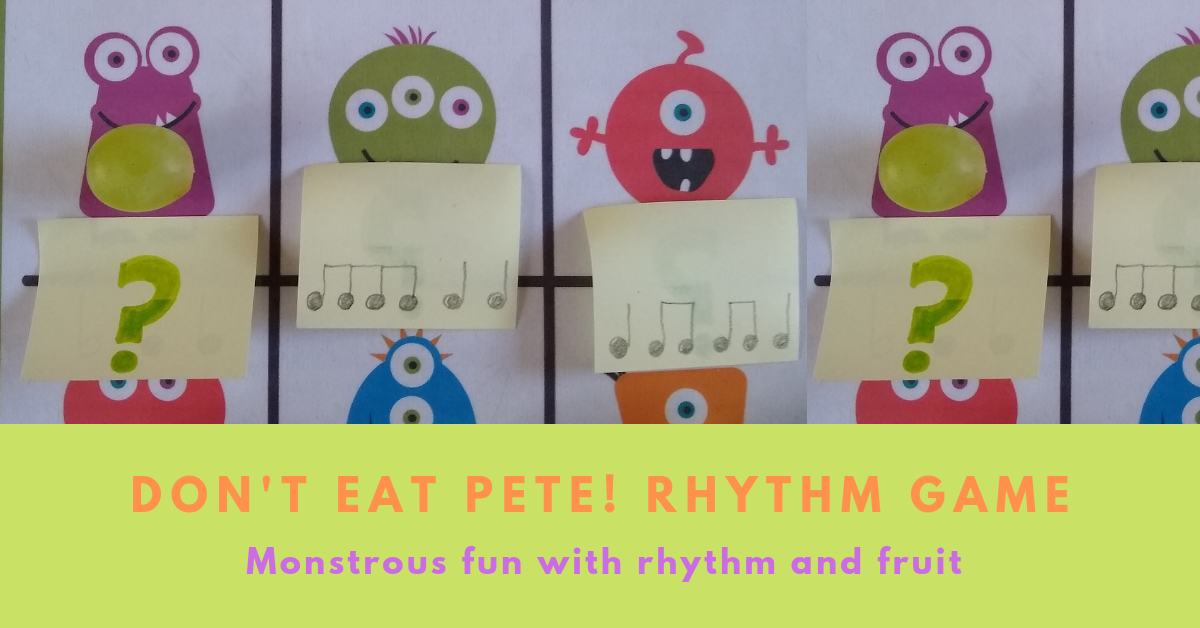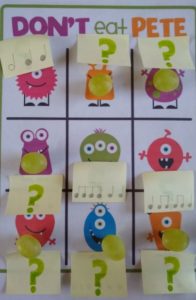
This is a hugely versatile game that children especially love in piano lessons, but I use it with students of all ages!
10 of my beginners at Didsbury Piano have started learning crotchet, quaver, minim and semibreve rhythms and I like to give them plenty of reinforcement in a fresh and fun way.
Today we had the first lesson back after half term so I treated them to a game. I like to ramp up the fun factor a notch on that first week back!
Don’t Eat Pete is a hilarious rhythm review game that my piano students ask me to get out again and again!
You can play it with an individual student or with pairs and groups.
What you need:
A Don’t Eat Pete! game board
There are loads online you can print off. I used this free one from theteacherswife.com
and
Little snacks or sweets
(I use raisins, cranberries or grapes for a healthy version)
How to play:
- Put a little snack or a sweet on each monster.
- Secretly select one of the monsters to be ‘Pete’ whilst the player looks away.
- They come and eat one treat at a time.
- As soon they pick up the treat on ‘Pete’, everyone yells ‘Don’t Eat Pete!’
- Refill the snacks, choose a new ‘Pete’ and swap players.
This is wicked fun just as it is, but twice as nice when we can use it to reinforce learning…
… so I made a rhythm version
I drew rhythm patterns on little sticky-notes, (face down so they can’t just choose the easiest-looking one- Mwah-ha-ha!)
Before they get to pick up the treat they need to tap or play that rhythm in time to a beat.
If they get the rhythm wrong then they have to try a different one instead.
You can move the rhythms around too.
Why it’s also great for partner/group lessons
The other students tap the pulse and listen to see if the player got it right- so they are developing their own sense of pulse and critical listening skills at the same time. Win-Win!
Other versions
Two of my advanced students played this to check the most challenging Grade 8 scales. Age 15 and 17, they absolutely loved it. Piano lessons for teenagers and advanced students don’t have to be boring!
You could review anything with it- for example musical terms, key signatures, notes on the stave, intervals. It’s a real workhorse of a game!



